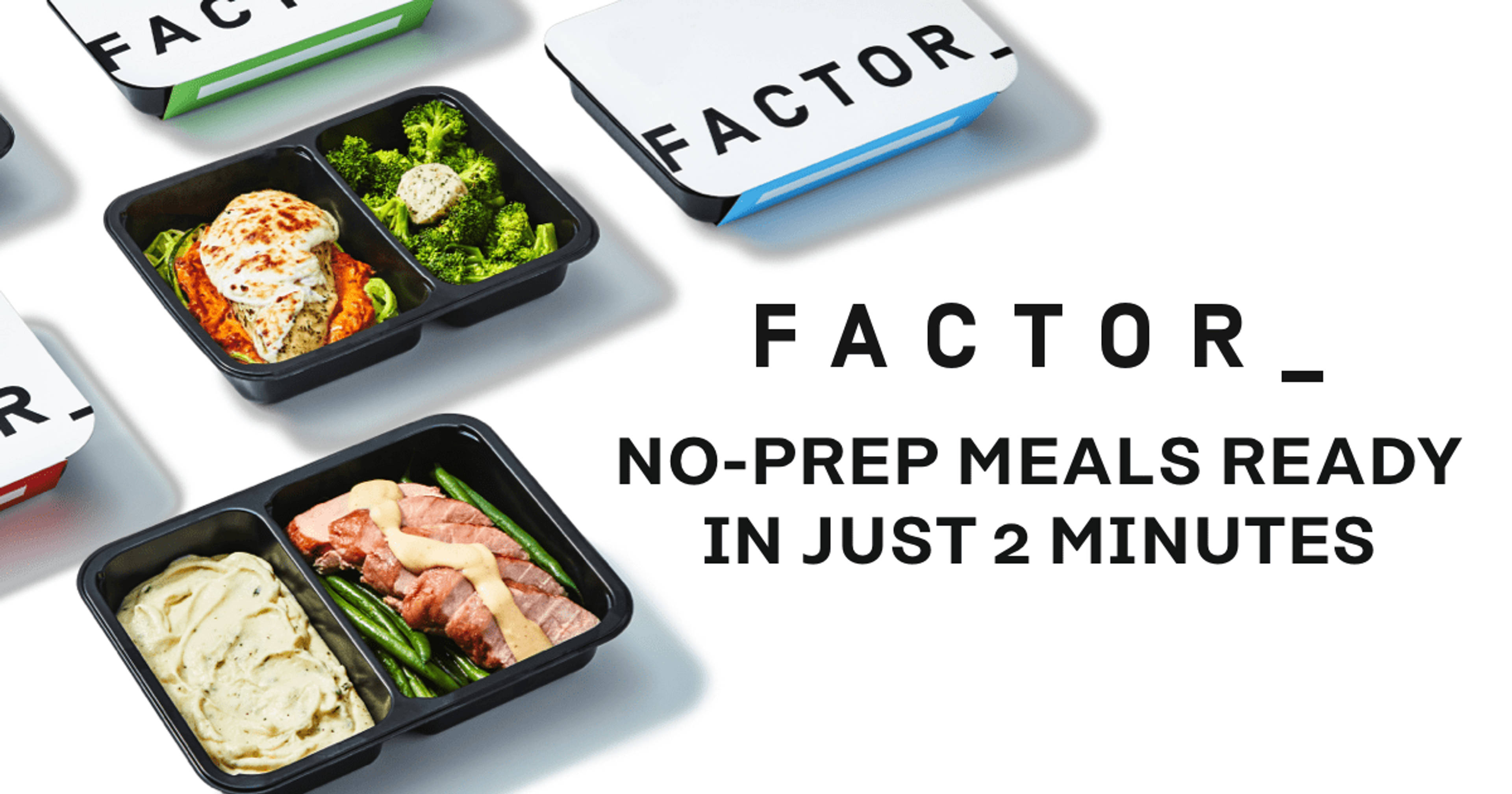Keto Diet Plan for Beginners
You don’t have to be a fitness guru to have heard about the keto diet. It’s been one of the most consistently popular diets for the last few years, with millions of people swearing by it. If you’re considering jumping on the bandwagon and trying the keto diet, you’re in the right place. The keto diet is a little different from other diets you may have heard about (or tried). It’s more of a lifestyle change than a diet and requires a bit more effort than other diets.
Take a low-fat diet, for example. It’s as simple as eating less fat. Not too difficult, right? Well, keto is a bit more complex, and there is a lot that you should know before you get started. Here at Factor, we’re all about educating people and giving them the tools they need to take control of their health. That’s why we’ve created this comprehensive guide that tells you everything you need to know about the keto diet so you can go from beginner to expert in no time flat.

What Is the Keto Diet?


Why Choose a Keto Diet?
How Do I Start a Keto Diet?
How Does the First Week Feel?
The first step is planning and preparation. Transitioning to a ketogenic diet is a significant change for your body. You're not just swapping out a few meals but shifting your body's primary fuel source from glucose to ketones.So, what can you expect during the first week? Some people experience a decrease in energy levels, a change in bowel habits, and perhaps a slight dip in mood. But these are temporary. Your body is simply adjusting to its new fuel source. This brings us to the infamous "keto flu." Don't let the name scare you. It's just a catchy term for the temporary symptoms some people experience when they start a keto diet: fatigue, headaches, nausea, and irritability. The good news? It's manageable. Staying hydrated, replenishing electrolytes, and eating enough healthy fats and calories can help ease these symptoms. And remember, this is temporary. Once your body adapts to ketosis, you'll likely feel more energetic and focused than before.
Can I Eat Carbs on Keto?
Total carbs are the complete amount of carbs in a food. On the other hand, net carbs are the carbs that your body can digest and use for energy total carbs minus fiber and sugar alcohols. To stay in ketosis, you'll want to focus on net carbs, aiming to stay under 20-50 grams per day.Does Keto Have Side Effects?
And remember, side effects like constipation or bad breath are temporary and manageable. Drink plenty of water, keep up with those electrolytes, and remember why you started this journey in the first place.Lastly, we can't stress enough the importance of consulting a nutritionist, dietitian, or healthcare professional before starting a keto diet. They can provide personalized advice based on your health history and goals. The keto diet is generally safe, but there are plenty of risks associated with it that you’ll need to know about before you get started. Plus, they can help you navigate any bumps along the road, so it’s well worth the time and money.
What Does a Keto Meal Plan Look Like?
Mid-morning munchies? Reach for keto snacks like adding some nuts to Greek yogurt or pairing some raspberries and cream cheese. For a delicious keto dinner, feast on a juicy steak with a side of roasted Brussels sprouts cooked in coconut oil or grilled chicken atop a zucchini noodle salad tossed in avocado oil and topped with parmesan.
Each week, your grocery list will be loaded with high-quality keto foods, including meats, dairy products, nuts, seeds, legumes, low-carb fruits, and a rainbow of veggies.
Are you in need of some substitutes for your favorite non-keto-friendly foods? We've got you covered. Swap starchy vegetables for low-carb options like cauliflower. Use olive oil or avocado oil in place of vegetable oils. Sweet tooth? Opt for natural sweeteners like stevia or monk fruit instead of sugar. And salad dressings? Make your own with olive oil, vinegar, and a dash of sea salt.
